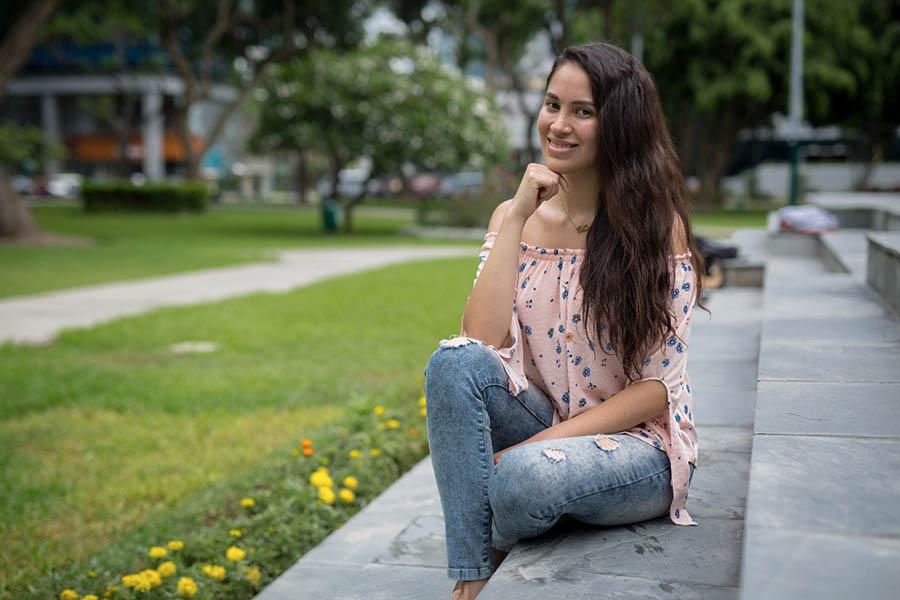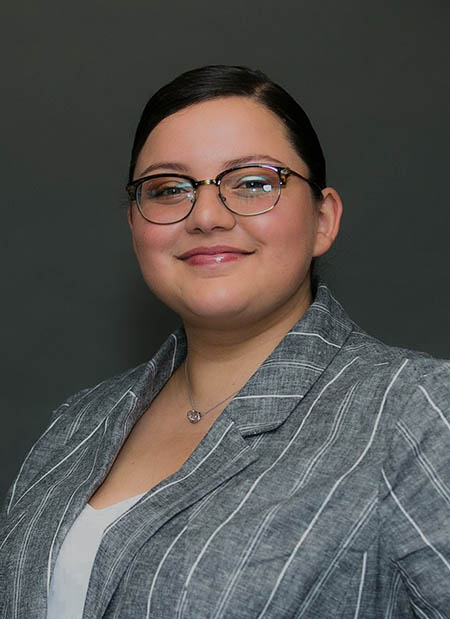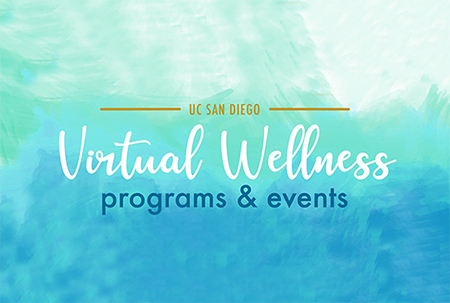Scientists Discover a New Signaling Pathway and Design a Novel Drug for Liver Fibrosis
Health & Behavior
By:
Published Date
By:
Share This:
Resources help students stay fit, social and successful in new remote-learning environment

Image by iStock.com/Halfpoint
Melissa Medrano moved to the United States from Peru to pursue her Ph.D. at UC San Diego in mechanical and aerospace engineering. As a first-generation student adjusting to life in the U. S., the transition to remote online instruction this spring quarter put new demands on Medrano, but she persevered and says she is now even more organized and confident in her studies. Her secret? She sought the new virtual success coaching now being offered by the Student Success Coaching Program.
“I prefer to see and meet people in person, but I was surprised how well the experience turned out for me,” Medrano said. “I meet with my coach, Lindsay [Romasanta], every week and even though she’s on the other side of the computer, I feel so comfortable with her—like she is right there talking with me. She not only motivates me but has given me great insight into how to confront the difficulties in my courses and how to improve the structure of my study time.”

Melissa Medrano, originally from Peru, is a graduate student at UC San Diego, pursing a Ph.D. in mechanical and aerospace engineering
Romasanta, who is the director of the award-winning coaching program, is among the many staff providing critical services to students remotely this spring quarter.
With a wealth of online offerings, UC San Diego is meeting the needs of students as the campus temporarily shifts to remote learning to protect the health and safety of the university community during the COVID-19 pandemic.
“I’m grateful for the student-centered efforts made by our colleagues across campus to ensure students continue to engage remotely with campus resources and programs,” said Alysson Satterlund, Vice Chancellor for Student Affairs. “Our UC San Diego community has demonstrated resilience and ingenuity in the face of new challenges.”
Below is a snapshot of newly launched programs designed to ensure students stay connected:
Whether students are overseas, on campus or across country, they can experience UC San Diego student life via the newly launched Virtual Student Union, a one-stop shop for all student-centered programing. “We wanted to create a portal where students can access all the virtual activities, events and resources that are available to them on campus at a touch of a button,” said Amanda Marples, assistant director of marketing for University Centers.
The new virtual student center is designed to give students a sense of belonging, no matter where they are. They can access meetups for student organizations, click to enjoy a virtual art show or take virtual yoga classes. Trending social media content also feeds into the platform, and there is a live “Zoom Room,” so at any time or place, students can join Zoom events happening in real time.

Carol Alvarez, a fourth-year double major in political science and ethnic studies attends Marshall College, and typically commutes to UC San Diego from Rosarito, Mexico.
And students are connecting. Carol Alvarez, a fourth-year double major in political science and ethnic studies from Marshall College, is still actively involved in the Alternative Breaks group, which she joined last year. The group meets via Zoom every Thursday night. As a commuter from Rosarito, Mexico, Alvarez said she misses campus but is enjoying continuing her studies and co-curricular activities without the two-hour commute. “I have much more time to get organized and prepare myself for midterms and finals,” she said. Alvarez now uses some of her freed-up time to volunteer more for Alternative Breaks, such as reading aloud to young listeners for the “The Children’s Bookshelf” Instagram page. “It’s something I would have not have had time to do before, but that’s one of the silver linings about the situation we’re in,” said Alvarez. “We have to adapt, and it forces us to step outside our comfort zone to try new things.”
Adapting to new challenges is at the center of Triton Tools & Tidbits, a podcast that launched April 9 to ensure students are not just surviving, but thriving in these circumstances. Each week, the podcast features various staff from student affairs and students themselves who work to answer key questions: How can we as a campus community support each other, and our students, to succeed in this unique environment? What tools do students need to succeed in an era of physical distancing? And how can students maintain connectivity and sustain a sense of community?

The Triton Tools & Tidbits podcast airs Thursday’s and is inspired by NPR’s Life Kit.
The podcast series was created as a collaboration between Student Affairs; the Office for Equity, Diversity,and Inclusion; the Student Health and Well-Being Cluster; and student leaders such as Brian Chen, a digital media intern in the International Students & Programs Office. A third-year visual arts major, Chen is a fan of NPR’s Life Kit and took a cue from the program’s structure which features different narrators and guests each week. With top-notch production and timely topics, listeners may feel like they’ve tuned in to a program that could air on national radio.
“We have about 300 listeners per episode,” said David Yang, who graduated last spring with a degree in visual arts media, and serves as one of the directors and producers for the podcast series. “We have a really diverse audience—we see some listeners tune in from Taiwan, France, and places all over the world.”
The first three episodes featured staff from the Office of Academic Support and Instructional Services (OASIS), International Peer Coaching Program, Counseling & Psychological Services, and Student Life, as well as student leaders. The speakers have addressed how to deal with anxiety, how to connect with your identity and how to become civically engaged.
Triton Tools and Tidbits is among the many resources offered by the campus to support students academically—even in this new virtual world. Each of the undergraduate colleges is also offering virtual academic advising and The Teaching + Learning Commons now offers all academic support services online.
Study abroad opportunities allow students to enrich their time at UC San Diego with supplemental educational experiences with other world-renowned universities around the globe. While physical study abroad programs are temporarily on hiatus for the entire UC system, students can still take part in international learning and internship opportunities. For example, “Virtual Europe” study abroad programs allow students to take courses from faculty in Athens, London, Barcelona and Rome, among other places. And remote internship opportunities are available for programs spread throughout Asia, Eastern Europe, South America, Australia and more.
“The quick shift that our UC San Diego faculty and departments have made to virtual online learning platforms provided us with the ability to think beyond the traditional model of study abroad,” said Kelly O'Sullivan Sommer, director of UC San Diego’s programs abroad office. “We were able to innovate new, hybrid models that can combine online learning and research here at home with shorter-term, more focused internships or lab work for when students can go abroad.”
Students living overseas, on campus or anywhere across the U.S. can access Recreation’s The Playground. The interactive site welcomes all campus community members to dance, meditate, compete in esports, and learn to draw and more through free virtual classes. “Instead of simply creating a page that lists helpful resources, we wanted to create a themed space that would inspire others to stay positive, active and healthy during these hard times,” said Mari Chosich, marketing director for Recreation.

All students can also still get care from Student Health Services (SHS), as well as Counseling and Psychological Services (CAPS).
All students can also still get care from Student Health Services (SHS), which remains fully operational. Students can get referrals to doctors in their area, have their prescriptions filled or have online appointments with their SHS doctor. If students need medical guidance, they can message the Advice Nurses through MyStudentChart or call 858-534-3300 at no charge. It is free to all students regardless of insurance, and can be used to call for advice outside of Student Health’s regular operating hours.
Counseling and Psychological Services (CAPS) is also fully operational, providing care for students as our university community navigates the continually evolving COVID-19 situation. The CAPS Central Office at Galbraith 190 remains open for urgent care visits, while mental health counselors are offering support via tele-visits or Zoom sessions. Students familiar with CAPS and those interested in reaching out for the first time can call 858-534-3755. Students can also message their counselors and schedule appointments via the mychart app. For current students now outside San Diego, CAPS can help find a provider closer to you for easier access.
Designed as a home away from home for all students, UC San Diego’s Campus Community Centers continue to offer connection, open dialogue and professional skill-building opportunities via virtual formats. Activities span an online book club with the Women’s Center, culture and language conversations at the Intertribal Resource Center, workshops on topics such as “Time Management in the Age of Zoom” at the Black Resource Center and more. Programs serve to build inclusion among a diverse population across campus.
“Being an inclusive and welcoming campus involves creating a sense of connectedness within our diverse community, no matter what the circumstances,” said Becky Petitt, Vice Chancellor for Equity, Diversity and Inclusion (VC-EDI). “With new remote platforms being used by the VC EDI Resource Centers and other areas across campus, we have learned we can create space for community and co-curricular learning; where students continue to feel connected and supported.”
Share This:
Keep up with all the latest from UC San Diego. Subscribe to the newsletter today.